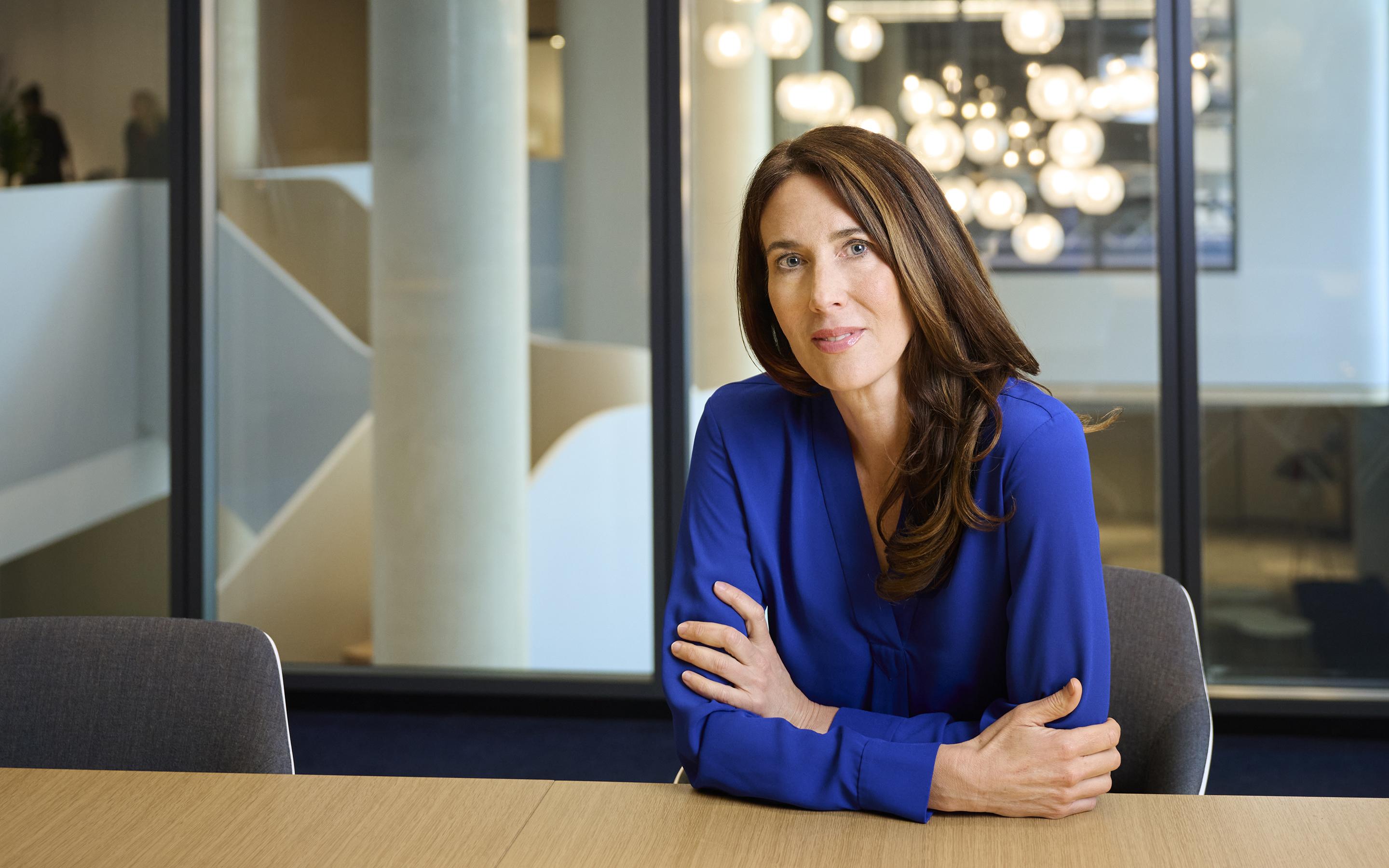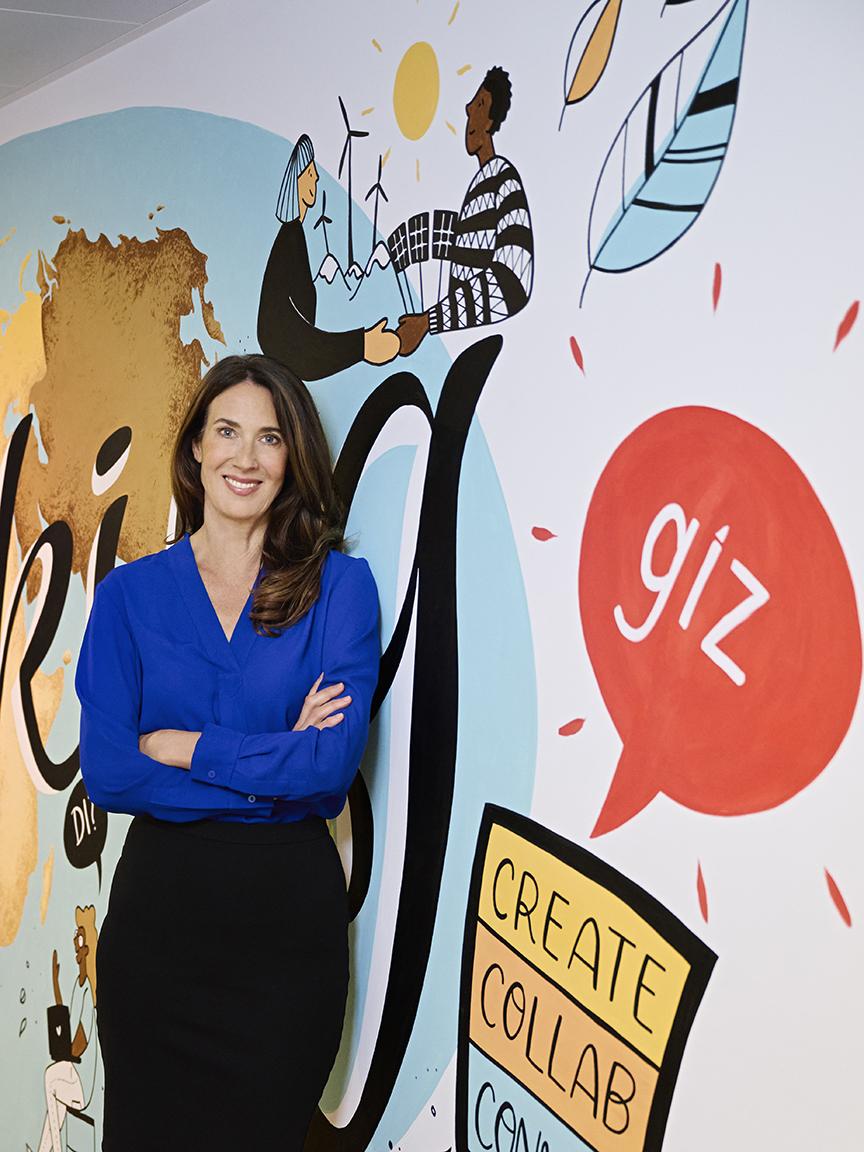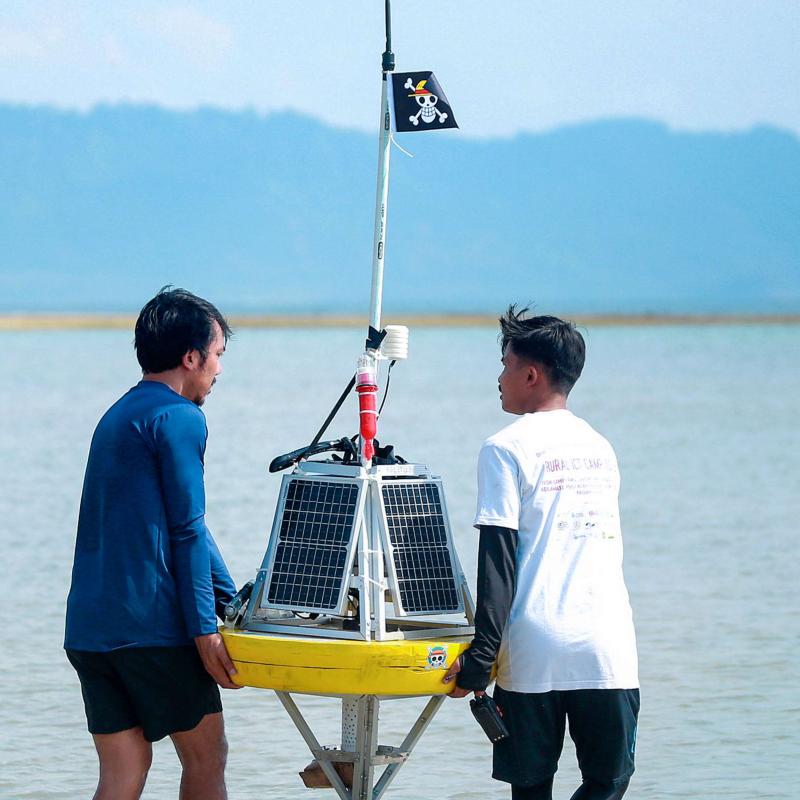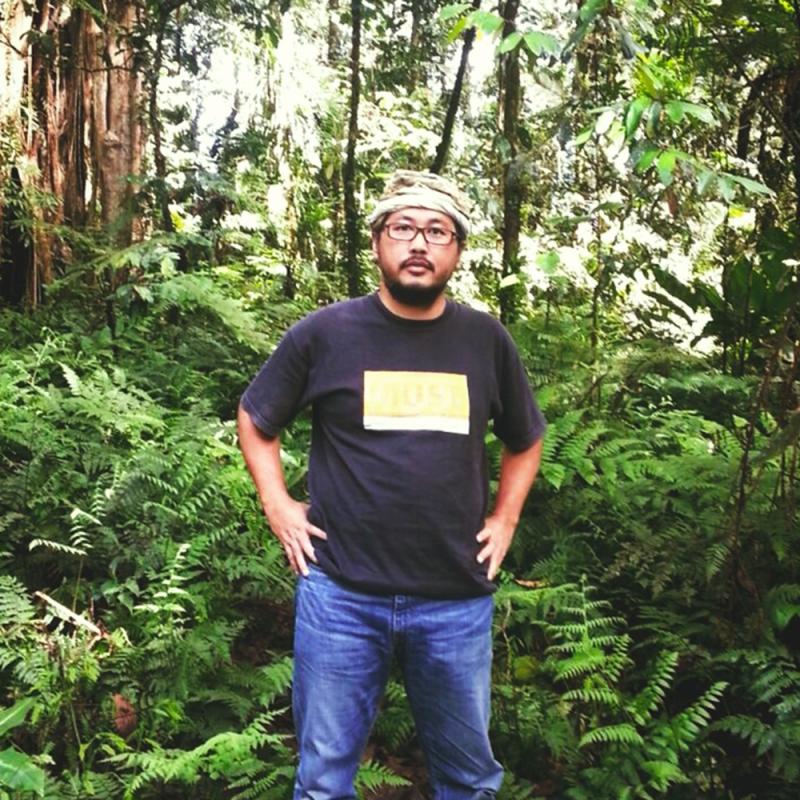Although AI is increasingly influencing political decision-making worldwide, women remain underrepresented in governance – worldwide only 10 per cent of AI strategies take gender issues into account. The reasons for this include a lack of representation, networks and resources. This is where FemAI comes in: the initiative, a collaboration between Women Political Leaders and GIZ, connects female political leaders with international experts, shares practical AI knowledge and promotes equitable, responsible AI policies across the African continent.
 GIZ/Gaby Gerster
GIZ/Gaby Gerster
‘The responsible use of AI could be a game changer in Africa’
In this interview for akzente, Member of the GIZ Management Board Anna Sophie Herken discusses why women leaders are necessary for a just transformation through artificial intelligence (AI) and why GIZ has launched the FemAI Leaders for Africa Initiative.
Ms Herken, you launched the FemAI Leaders for Africa Initiative at the World Economic Forum 2025 in Davos. Why is now the right time to support African women political leaders in becoming pioneers in the use of artificial intelligence?
The rules that will govern our digital future are being written now – and it’s crucial that women play a part in shaping them. AI is already changing all areas of life, from the economy and education to health and governance. In Africa in particular, there is enormous potential for AI applications in fields such as health care, climate-resilient agriculture and digital financial services. This makes it all the more important to create the right framework now and systematically build expertise so that African countries become not only users, but active co-creators in this development. Currently, only around two per cent of all AI start-ups anywhere in the world are based in Africa, and African voices are still significantly underrepresented in international governance forums.
The World Economic Forum in Davos was the right place to begin to confront this imbalance. With FemAI, we’re specifically integrating African women political leaders into the global debates on AI. We’re creating spaces in which they become visible as decision-makers and play an active part in shaping the national and international agendas on artificial intelligence. At the same time, we benefit from their viewpoints, experiences and use cases – since designing AI responsibly is a global task that demands better understanding, more dialogue and joint solutions everywhere.
FemAI brings AI to those places where decisions are made – parliaments and ministries. Why is it important to see AI not just as a technology, but also as part of citizen-centred policy-making?
Because AI is already influencing how decisions are made. When algorithms are involved in decision-making about loans, health care and state services, AI becomes a political reality and creates new challenges, for instance with regard to discrimination and lack of transparency. With FemAI, we’re creating access to global decision-making processes in which African women political leaders both discuss and actively shape the opportunities and risks of AI. To achieve this, it is crucial that policy-makers are able to grasp what is happening and set down rules that put digital technologies to work to serve people.
Although billions are being invested in AI worldwide, this is not so in Africa, where such funding is often lacking. Despite this, what role can AI play for the continent?
I’m certain we’re going to see very rapid uptake and use of AI on the African continent, for example in improved access to health care, more efficient agriculture and in the education sector. Probably even faster than in Europe or North America. At first glance, that may seem paradoxical. But in contexts where there are no alternatives, AI can lead quickly to radical change. I can give you an example: there are rural areas in Africa where people still have no access to health care services. AI could fill this gap in the years ahead and take charge of centralised health checks for patients. The responsible use of AI could therefore be a game changer for development in Africa. We can see in many sectors that the continent is a pioneer of innovations from which everyone can learn.
AI is more than just technology – it’s also about power, representation and justice. Why is leadership so central to the digital transformation – and why does it specifically need African women?
Technological transformations are renegotiating social power relations. This change can only be organised fairly for everyone if diverse viewpoints are involved in the decision-making process. According to the World Economic Forum’s Global Gender Gap Report, the proportion of women among those involved in the AI sector worldwide in 2022 was just 30 per cent – and female representation on African parliamentary committees for technology is often even lower. If we want to use AI for social justice, we specifically need women leaders. And this is where FemAI comes in. It connects technology of the future with leaders of the future and makes this aspiration a reality – with women champions of AI from countries such as Tanzania, Nigeria and Rwanda. For these leaders, we’re bridging the divide between the international stage and local implementation. It’s a concept that would ultimately also be of use here in Germany and in other regions.
FemAI connects women political leaders and AI experts – from the world stage to the local lab. How does this change the way digital technologies are seen politically?
This direct dialogue between the political level and technological ecosystems offers a unique platform that creates new spaces for thinking. In addition, it is shifting the focus on digital technologies away from the abstract debate about their future to the specific power to shape policy. Discussions in Tanzania, for example, are addressing how to jointly create a local AI policy that is both inclusive and ethically acceptable and supports the needs of all citizens. These discussions place a particular focus on developing sustainable AI ecosystems with a view to promoting and networking innovation locally.
 GIZ/Gaby Gerster
GIZ/Gaby Gerster
‘The rules that will govern our digital future are being written now – and it’s crucial that women play a part in shaping them.’
What role do international partners such as Women Political Leaders and Smart Africa play in this?
African women political leaders show how digitalisation can be considered not just in technocratic terms, but also in social terms – in ways that are participatory, locally mainstreamed and often use minimal resources to great effect. International partners such as Women Political Leaders and Smart Africa are the key to achieving real political leverage. They give African women political leaders direct access to the point at which innovation and governance and global visibility interact.
What can European decision-makers learn from FemAI leaders? What alliances are required for a just AI future?
For a just AI future, we need to design digital spaces from the outset in such a way that they protect rights, ensure transparency and enable social participation. GIZ pursues a just digital governance approach, because when no clear rules are in place, technologies can easily become instruments of power. In 2024, the African continent set a new record, with 21 internet shutdowns in 15 countries. These shutdowns, which often took place during political unrest or elections, not only undermine freedom of expression, but also cause considerable economic harm. The economic losses resulting from internet shutdowns in sub-Saharan Africa amounted to around USD 1.74 billion in 2023.
European decision-makers can learn from initiatives like FemAI. We can only establish a just digital framework if the voices of policy-makers, civil society and technology – and especially the voices of women – are heard and included on an equal footing. To achieve this, GIZ backs forward-looking partnerships with international stakeholders from the public and private sectors and combines technological innovation with local advisory expertise. After all, true digital justice can only be achieved if innovation and inclusion go hand in hand.

